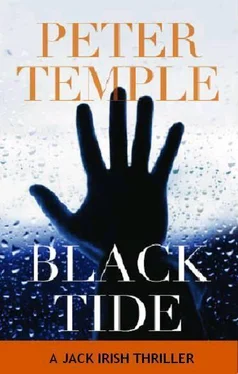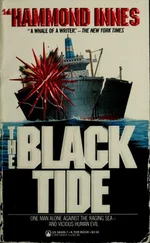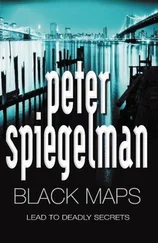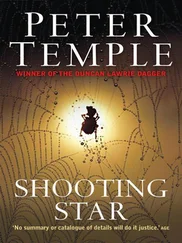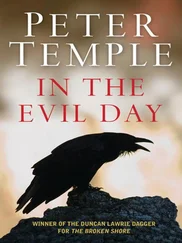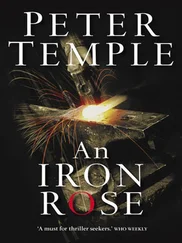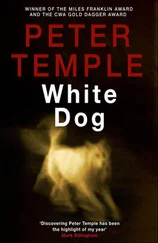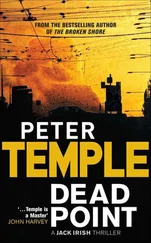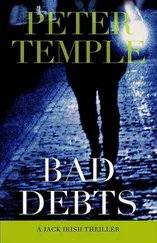Cam took the left fork. We went around the house. Sheds, sheds large and small, some weatherboard, some corrugated iron, all sagging, senile, close to shot.
‘Quiet here,’ Cam said.
We completed the circuit, Cam did a U-turn, stopped passenger side on to the front gate. He reached into the back for his sportscoat. ‘Seriously in hiding this would be,’ he said. ‘Any shit at that front door, I’m goin right rapidly. Small edge on goin left, they say.’
I swallowed, full of fear. ‘Who says that?’
He looked at me, the sallow, impassive face, Australian minestrone of genes, dark and dangerous broth. ‘The livin, they’d know. Put a few into the doorway. Anywhere. Make a noise.’
He got out, put on his nubby sportscoat, adjusted his collar, took his time, gave an exaggerated shiver, went through the open gate and onto the concrete path bisecting an abandoned garden once loved by someone.
I pressed the button. The window slid away. Astringent polar air came in, wet, stung my lips, my eyes. I had the automatic in my hand, deadly and comforting extension of the arm, pointing at the floor between my knees, unsteady knees, the weapon perfectly balanced, silky smooth and sexual to the hand, to the web between thumb and forefinger.
Cam was at the front door. He knocked.
I turned my body, brought the automatic up to just under the windowsill. Why should Cam do things like this? What made me think it was acceptable to drag him into my sordid affairs? How was it that I could accept his offer to go to the door with only a whimper of protest?
Waiting. I’d forgotten to pull the slide back, Jesus Christ. I pulled it, precise slippery sound of oiled metal parts machined to impossibly small tolerances.
Cam knocked again.
Waiting. Cold. A tractor far away, sound borne on the winter wind.
Cam scratched the back of his neck and knocked again.
Waiting.
He turned his head, put up his right hand and beckoned me with the index finger.
Relief.
I got out, walked up the path, pistol behind my back. Cam was putting on thin black gloves. At the front door, I handed the weapon over.
Cam held the killing wand at the end of a slack arm. ‘Don’t think there’s a party on here,’ he said. ‘Want to go in?’
I nodded.
Cam tried the doorknob. The door opened, unhappy on its hinges.
Passage, dark, narrow, faded peeling wallpaper, doors right and left. The smell was of damp, of decay, of the secret earth beneath the house deprived of sun for a hundred years, of the smoke from trees beyond number reduced to ash, of meat roasted, boiled, fried.
We went from room to frayed room. Everything of value had either been sold or pilfered. Deep impressions on the carpets showed where a double bed, wardrobes, chests of drawers or dressing-tables, armchairs had stood. There was no fridge, two mantelpieces and cast-iron fireplaces had been ripped out, even the bath in the lean-to bathroom was gone. All over the house, cigarettes had been ground into the carpets, empty Vic Bitter stubbies lay in corners, broken in the fireplaces.
I went over to the kitchen window over the sink and looked out. Rain, wind lifting the corrugated iron sheets on the roof of a shed. On the highest point behind the outbuildings, a grey fibreglass tank stood in a space cut into the hillside. Presumably to stop it being blown over when empty. Rainwater would be pumped up to the tank, flow back by gravity. I turned on the sink tap. A rusty trickle came out.
Out the back door, a relief to get into the light, the wind. In the open space behind the house, water lay in pools reflecting the moving sky. We inspected the big shed first. It was the milking barn, concrete floor, milking stalls, wide gutters. The back door had blown off and the wind was threatening to lift the roof.
Next door had old oil stains on the packed-earth floor, probably the machinery shed, empty now except for unidentifiable bits of metal lying around.
Two smaller sheds, one too dangerous to enter, had no obvious purpose. The large feed barn was holding up reasonably well. Inside, two stacks of hay bales down the sides had toppled inwards, obliterating the central aisle.
I looked around for tyre tracks. Hopeless. It had been raining here for weeks. No track would last more than a few hours.
‘Well,’ I said, ‘it had to be done. Let’s go.’
We walked around the house, through a grove of dying fruit trees, packed the pistol away and left Gary’s aunty’s farm.
Twenty minutes later, on the highway, Cam said, ‘Locals picked the place pretty clean.’
‘Probably the neighbours,’ I said. ‘Surprised they didn’t take the fibreglass water tank. Newest thing on the property.’
‘Good stuff fibreglass,’ Cam said. ‘Doesn’t rust. Poisons you but it doesn’t rust.’
‘Turn round, let’s get back there,’ I said.
Cam didn’t blink, braked gently, changed down. Inside twenty seconds, we were heading back to Gary’s aunty’s farm.
‘Don’t tell me,’ Cam said. ‘I like surprises.’
As we went down the track to the farmhouse, I said, ‘Around the back. Got a torch?’
Cam pointed at the glovebox. I opened it and found a slim black flashlight. We got out.
‘Up there,’ I said. Cam’s eyes followed mine to the water tank.
We climbed the small hill, buffeted by the wind, getting wet. A path led up the side of the cutting, taking us to a position above the tank, looking down at its slippery top, at the manhole cover.
‘Why?’ Cam said.
‘Rusty water coming out of the kitchen tap,’ I said.
‘Could be coming from somewhere else.’
We looked down on the farmhouse. There were two corrugated-iron rainwater tanks, one on either side of the house.
‘No gravity down there,’ I said, stepping gingerly onto the tank, taking careful steps to the cover.
I put the flashlight in my mouth, knelt on the wet surface. The cover had a moulded handle. I pulled at it and it came off easily, almost causing me to slip sideways.
I put my hands on the tank, leant forward, looked into the opening.
Pitch dark. Smell of decay.
I took the flashlight out of my mouth, found the button, switched it on, pointed into the tank.
‘Christ.’
He was looking at me, lying on his back in a few centimetres of dark water. His mouth was open. Part of his lower jaw was missing, a congealed mess with pieces of white bone showing. His shirt was dark, the colour of the water he was lying in.
He’d been standing in the tank when he was shot. Shot several times from above. By someone who had walked him up to the tank at gunpoint, made him climb into it, leaned over the hole and shot him.
Gary Connors?
No. I could see his top teeth, good set of top teeth, no gold canine.
‘Nasty?’ asked Cam.
I nodded, got to my feet, took the steps back to land.
I had the photograph in my wallet. I got it out, handed it to Cam with the flashlight. He stepped over to the manhole, casual, confident steps, knelt, shone the torch into the tank.
He coughed, looked over his shoulder at me, non-committal look, examined the photograph, looked into the tank again.
‘Him, I’d say,’ he said. ‘Rings on the little fingers.’ He put the cover back, found a handkerchief, did a careful wipe. ‘Your bloke?’
‘No. Dean Canetti.’
We went back to the car. ‘Kitchen tap,’ Cam said, offering his handkerchief. ‘And anything else.’
I went inside, uneasy, wiped the kitchen tap, the back door doorknob.
Outside, Cam was leaning against the car, smoking, looking at the outbuildings. There was an air of menace about the place now: a man had been murdered here. Executed.
‘Bloke shot in a tank,’ he said. ‘Changes the way you see a place.’
Читать дальше
